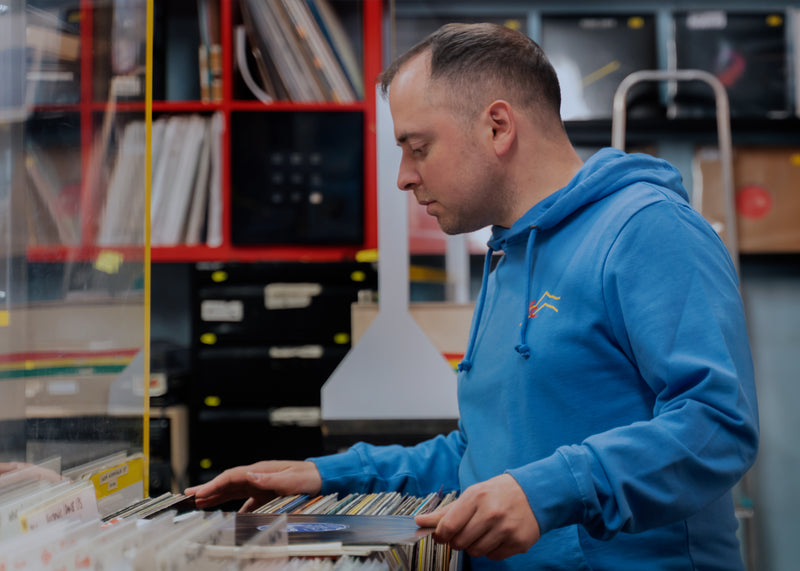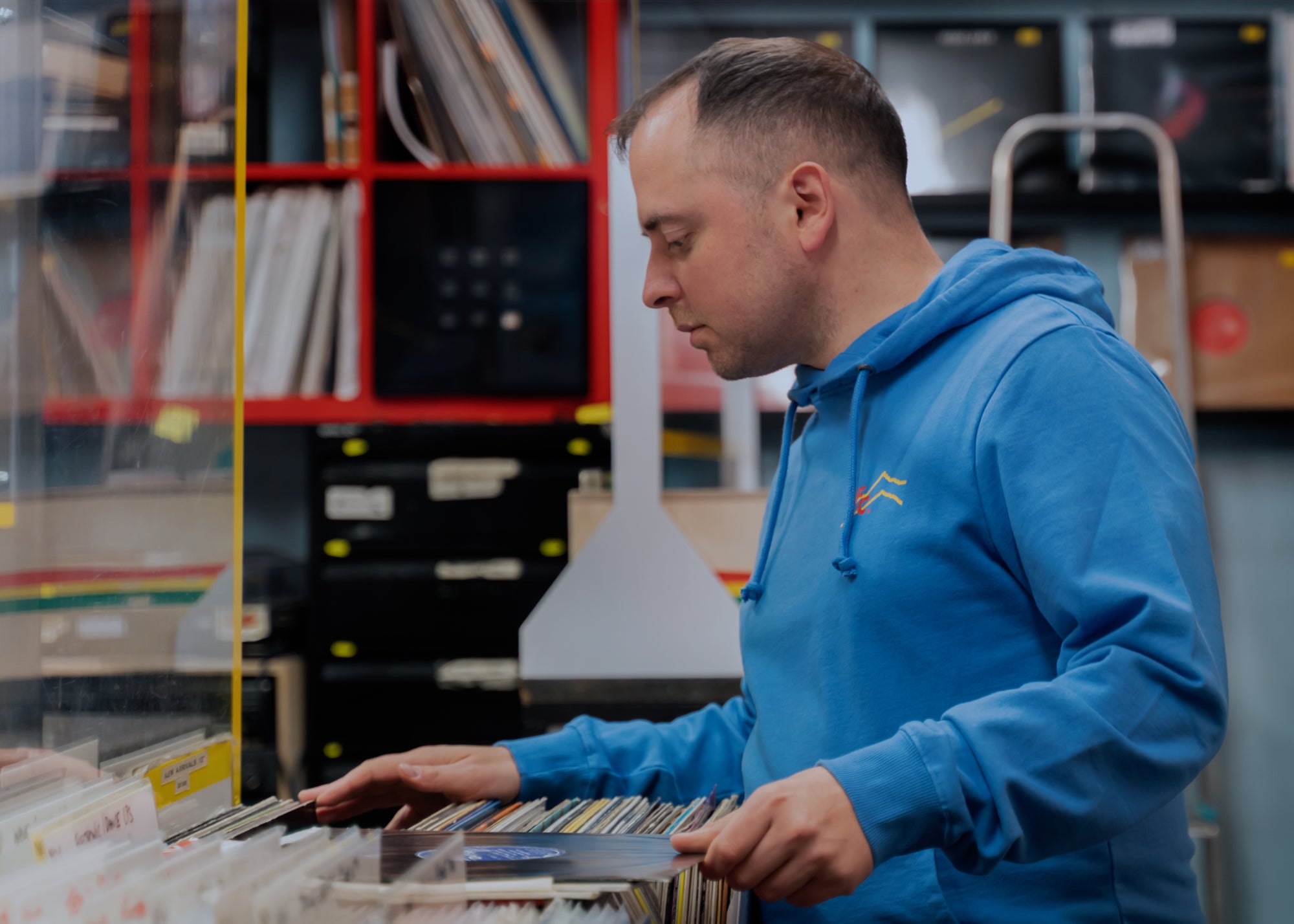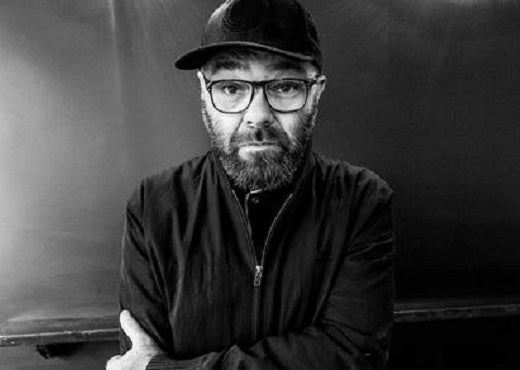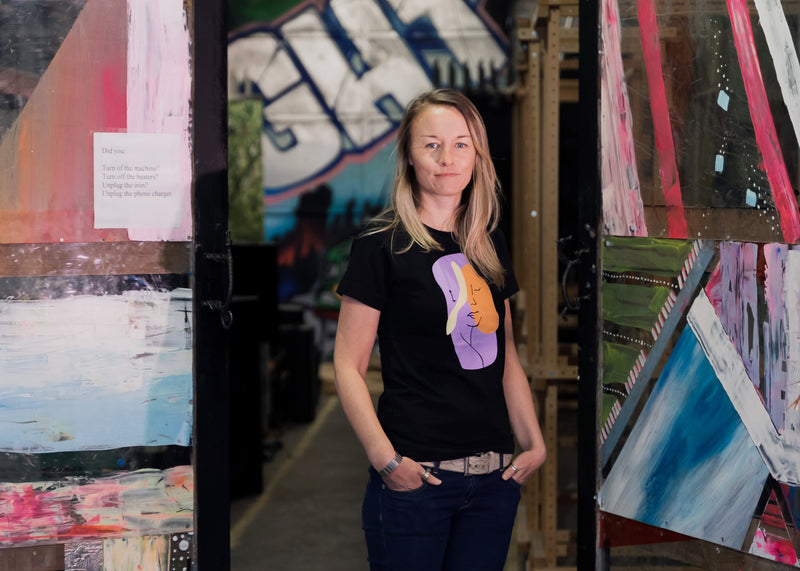
Sunil Sharpe is a DJ, activist and educator. He’s one of Ireland's most sought after techno DJs and producers, and a regular fixture in the club scene at home and around Europe. Since the mid-2000’s, he’s been advocating for a more progressive approach to nightlife as part of the “Give us the Night Campaign’. Their aim is to modernise Ireland's archaic licensing laws and create a more diverse and vibrant night-time industry. He was recently appointed to the government's newly launched ‘Night-time Economy Taskforce’, where we’re hoping some of these issues will be tackled.
We met up with him in town for a chat about Dublin, music, our creative industries and how we could do things better. We’re lucky to catch him, his normal weekly routine would have him travelling for gigs, but he hasn’t seen much of the airport this year.
“I've been doing a lot more talking than actually doing and playing music,” he tells us. “COVID-19 has done some strange things to a lot of people, in that it's sort of paralyzed a lot of us.. maybe creatively and even just with our movements.”
He says that he hasn’t actually missed it as much as you’d think he would;
“The whole scene was starting to frustrate me a little bit, so it’s probably been a good time to take a step back.”
It’s not that he doesn’t want to get back into it, he reassures us, but that in the last few years he feels the energy has shifted, and he’s found himself enjoying it less. “People don’t dance like they used to....They’re preoccupied, they go into a club treating it like it's a festival stage.”
It’s not specific to Ireland, but the club scene as a whole. “It went from a scene to feeling like a more soulless industry.” he tells us. “I’m glad in certain ways that a lot of people are going to stop and reflect, and think about where we go next. ”
Sunil has been teaching on the DJ Techniques and Music Production course in Bray for the last 15 years. He doesn’t envy the kids these days with the world they’re walking into. They’re expected to be personalities, to look right, dress right, be good at the chat - a whole package. In a saturated space, it can be hard for talent to get seen.
“There are younger DJs I know now that are so committed to DJing, but maybe they don't have the online game or the social media self promotion to be able to make it work and get people looking at what it is that they do.”
“I think if you're really serious about the skill side of things and you’re putting all your time into that, you shouldn’t have to be thinking too much about your next post on social media, or worrying about how many likes you have. It’s a lot of unnecessary pressure.”

While part of the course is learning the skills, there's an element of mentorship to it, passing on insights from his own experience of building a career in Ireland. It’s not an easy job in a place where the night-time industries are severely neglected.
With a 2.30 closing time for clubs, Ireland has some of the most restrictive laws in Europe, harking back to the ‘Dancehalls Act’ of 1935.
‘‘We haven’t correctly legislated to allow venues to operate into the later hours” Sunil explains. There’s no legislation in place that acknowledges venues other than pubs, meaning there’s no such thing as a nightclub in Irish law.
“At the moment we're using an old licensing type that’s more for bars that want to run a special event or hotels that host weddings. Nightclubs are running off these special exemption orders that have been in operation for roughly 80 years.”
Venues need to apply for licences every month to get a couple of extra hours trading. This makes it too expensive for smaller nights to run at a profit, and money that could be going back into the industry is instead being spent in the courts.
“It's about showing trust and respect to our young people, operators, and creatives,” he believes. We should be supporting, not exporting, our artists.
“The way it is now makes it impossible for people to build up their careers in this industry, where it's vital they have a place to play. Performers need long term access to spaces.”
It’s not great for music fans either. He’s noticed people starting to bypass the Irish clubs completely, opting for weekends away in other cities instead, and saving their money for tickets to the big festivals.
“We've kind of lost our regular weekly community and club scene that we used to have,” he points out. “We have to ask why our own offering pales in comparison to other countries. Atmosphere wise, it takes a lot to beat an Irish crowd, but we haven’t been matched with the conditions we deserve.”
The government has begun to address this with the creation of a Night-Time Economy Taskforce, which Sunil is an advisor on. He says changes are very slowly starting to happen.
“There's not as much resistance within the government, I think they understand it and the media understand it more now too…Our proposal has led to a fairly significant inclusion in the new programme for government...what we’re aiming to achieve has been put in motion”
It may be propelled forward by the impact of Covid 19 on the arts, culture and events industries. With the days of jam-packed venues on hold for now, he reckons we may need to loosen curfews if places are to reopen at limited capacity. The people he’s spoken to wouldn't be able to meet regulations and cover their costs;
“Because their capacity could be down by 50 or 75%, how are they meant to make that money up?”
Part of making the city more accessible is expanding and diversifying the range of events on offer. “People of all ages need to feel the city is theirs at night, not just for the under 23’s”
That means recognising the broad spectrum of people’s interests, and making space for them, rather than seeing new choices as competition.
“If places thought to themselves, actually lots of those people aren't coming to us anyway so let's attract and cultivate our own crowd that come specifically for what it is we do - they're not coming to us just because we’re the only show in town, they're coming to us especially for the entertainment we provide.”
If we’re to have more choices, they need to happen somewhere, and spaces for culture are in shortage already. “Bad planning in Dublin has been at the detriment to music,” Sunil tells us. The biggest issue venues come against is neighbours and noise, yet apartments are constantly being built next to places that are tailor made for nightlife.
If leisure and culture were prioritised and factored in to planning, spaces next to offices could be earmarked for venues, and apartments blocks wouldn't be built next to existing ones, forcing an 11 o’clock noise curfew..
Sunil has ideas for how our cities spaces could be better used; “We should be opening the door to artists and creatives in the form of spaces for co-operatives - that's the model I'd love to see materialise more in Dublin”
“The thing that's missing is some sort of economic model.” They need to sustain themselves independently, so they’re not overly reliant on grants and subsidies. If they can pay close to market rents, it’s easier to make happen.
“If we had our way we'd be able to repurpose many of the spaces you see around the city center” he tells us. For the venues of the future, we need multi-purpose creative spaces that can house pop-ups, galleries and other activities by day, and events later into the night. These spaces need to be considered more in development plans.
It’s possible the shift away from the city that’s happened during Covid may stick, as more people work from home and get to know their local areas.
“Dublin might start developing neighbourhoods and areas outside of the city center.
Maybe we might get out of this way of thinking where the city center is the only place to go”
We’ve seen this trend start in recent years with popular venues setting up outside the city boundaries. The Bernard Shaw has moved to Drumcondra, there’s The Circular in Rialto, and Bodytonic’s Jam Park in Swords is now our biggest events space.
Dublin's first 24 hour bus service to the airport passes through Swords, making Jam Park an accessible option for Dublin clubbers. With a better transport system, more of Dublin could open up, along with the possibilities for culture and recreation.
As we look towards opening back up from Covid, there’s lots of talk of a ‘new normal’, where we do things differently. We ask Sunil if there's anything he’d like to see change.
After all this time away from each other and hanging out on Zoom, he’d like to see us returning to being human. Nights out would be a different experience if we turned off our phones for a bit, and re-learned how to connect.
He’d like to do a night where we don’t use our phones to record it, something that some people may never have experienced. “It doesn’t make the experience of nightlife as vital, and it kind of needs to be”
“You're told very nicely when you go in that there's a no filming policy, that this is a place to dance, to enjoy yourself, to switch off, to just lose yourself in the music and the atmosphere, to hang out with your friends, to remember that as a really unique night that you enjoyed together, and you can revel in that conversation afterwards.”
“Imagine we could get venues on board for that - for this weekend all venues in the city are imposing a no phone policy - it would probably make the news!”




